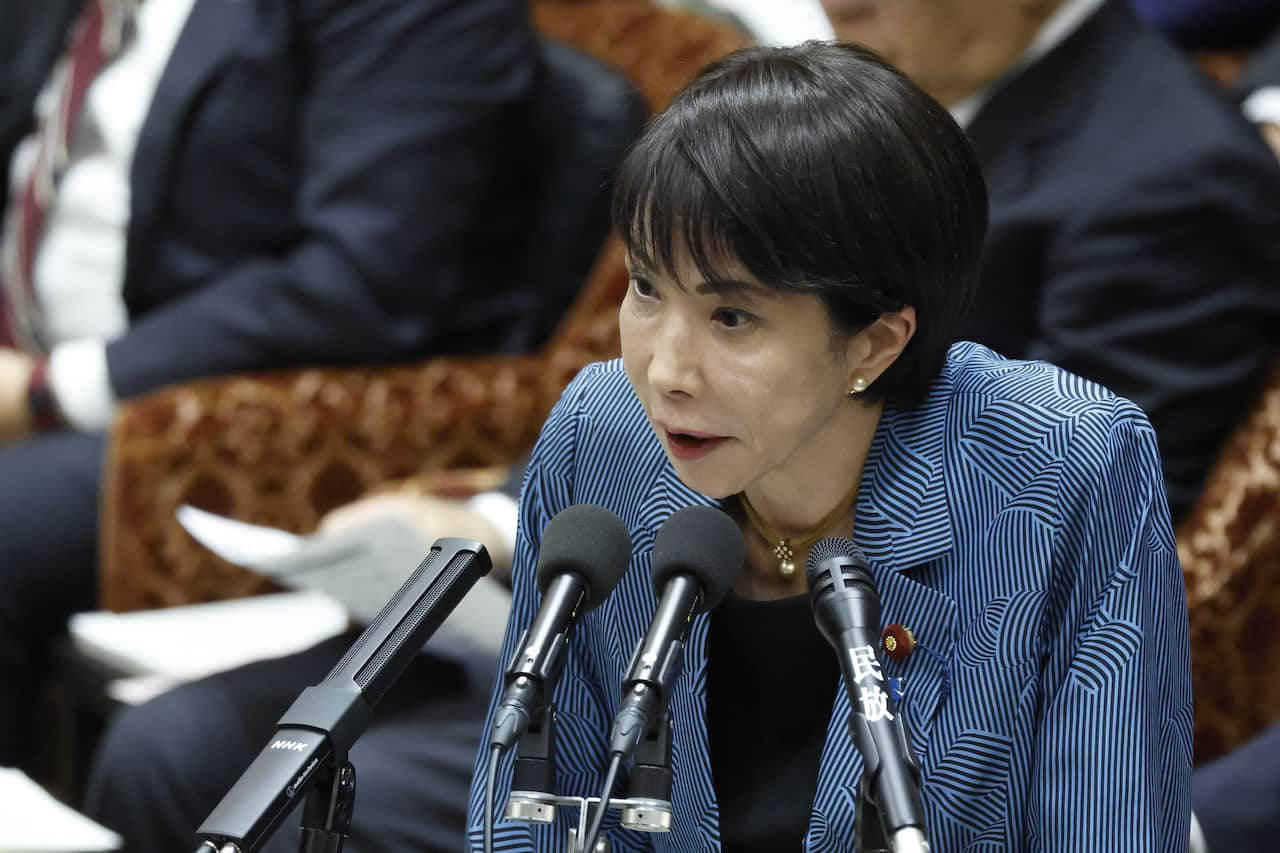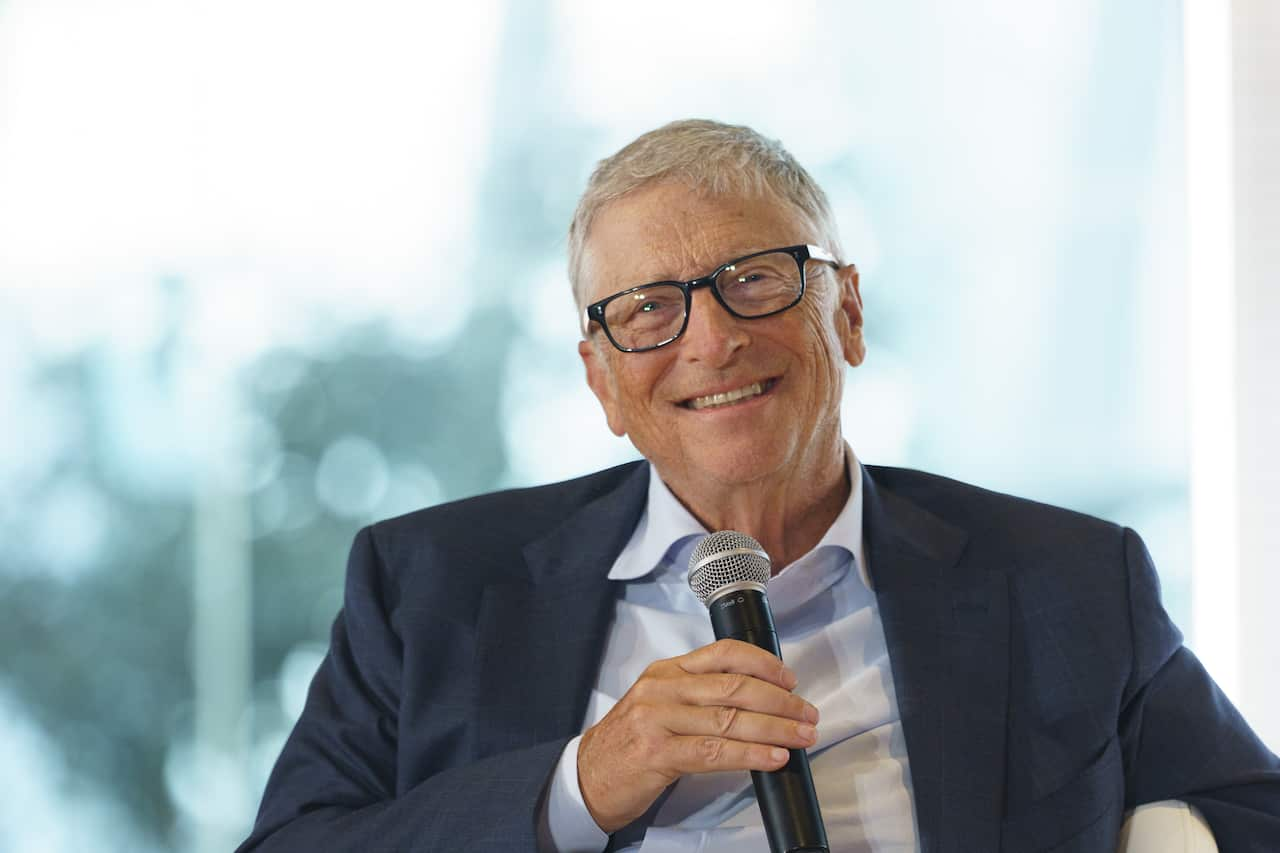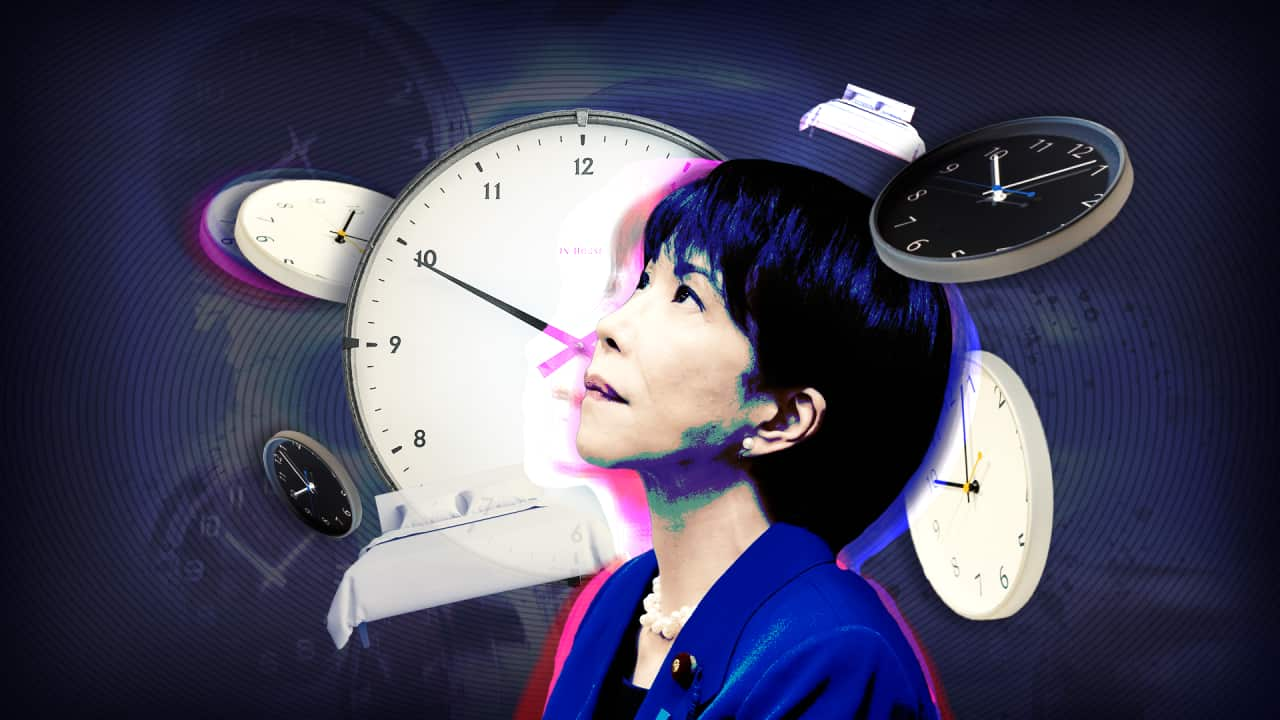Japan's new Prime Minister, Sanae Takaichi, made an extraordinary statement at a legislative committee hearing last week.
"I sleep about two hours now; four hours at the longest," she told the committee.
"I feel it's bad for my skin."
The remark came just days after she drew backlash for calling a meeting with aides at 3am — reinforcing concerns her leadership may entrench, rather than challenge, Japan's punishing culture of overwork.
Her claim has raised eyebrows, but Takaichi is far from the first political leader to survive (or boast of surviving) on minimal sleep.
Former UK prime minister Margaret Thatcher, one of Takaichi's role models, famously ran on four hours a night. United States President Donald Trump is said to get by with only a handful of hours, as did at least two of his predecessors, Barack Obama and Bill Clinton — the latter of whom once admitted he made his biggest mistakes of his life while tired.
A 2018 Australian study of federal politicians and other parliamentary staff found half were not getting the recommended amount of sleep, with some sleeping as little as three and a half hours per night.
The pattern extends well beyond politics. American billionaire Martha Stewart reportedly built her lifestyle empire on as little as three hours a night. Business executives, such as Twitter co-founder Jack Dorsey, have also spoken about not making much time for rest.

It's well-documented that sleep deprivation affects more than just your skin. It can reduce cognitive functions like decision-making and emotional regulation, and negatively impact mental health.
In the long term, it can also lead to serious health issues, including an increased risk of heart disease, stroke and diabetes.
If a lack of sleep can hinder our abilities to solve problems, make big calls and manage emotions — crucial elements of effective leadership — why are we comfortable with some of the world's biggest decision makers normalising it?
Is it even possible to function when consistently sleeping so little?
Some people seem to simply require less sleep to function normally. Scientists are still trying to understand why this occurs and how prevalent it is, but believe it's connected to a rare genetic mutation.
However, not everyone who gets by with less sleep is a natural short sleeper. In many cases, they are just chronically sleep-deprived.
Shantha Rajaratnam is a professor of sleep and circadian medicine and chair of the Monash Sleep Network at Monash University. He says people often misjudge how much sleep they need.
"It's common for people to report that they think that they need less sleep than they actually do, and that's partly because people develop coping mechanisms to be able to manage short habitual sleep," he tells SBS News.
Over time, this creates what's known as a "sleep debt".

Even in the short term, a host of negative ramifications can start to accumulate. Risk of illness increases, problem-solving skills and memory functions diminish and reaction times drop.
You're also likely to grow more irritable and reactive.
Siobhan Banks, director of the Behaviour-Brain-Body Research Centre at the University of South Australia, says people who sleep very little at night may still be taking short naps throughout the day, which can "reset the clock a little bit".
But out of necessity, eventually, they will fall asleep — whether they want to or not.
"Your biology is such that you will just start falling asleep, even if you're standing up, even if you're engaged in conversation, the drive for sleep is so strong that you will fall asleep," Banks tells SBS News.
We hear about these extreme scenarios, and never about the fact that in a couple of weeks' time, [they] get sick and have to sleep for nine hours, 10 days straight.
People can also grow accustomed to being consistently sleep-deprived, Banks says, lowering their benchmarks for what feels like a normal level of functioning.
As a rule of thumb, most adults need between seven and nine hours of sleep a night.
The acute dangers of insufficient sleep
Research has drawn parallels between impairments from sleep deprivation and those caused by alcohol intoxication.
Staying awake for 17 hours has been likened to having a blood alcohol concentration (BAC) of 0.05 per cent — the legal limit to drive in Australia — while being awake for 24 hours is akin to a BAC of 0.10 per cent — double the legal limit.
With fatigue the primary cause of roughly 20 per cent of road accidents in Australia, a 2023 review set out to pinpoint how little sleep makes driving unsafe.
It determined people generally experience a modest level of impairment after six or seven hours of sleep, but getting only four or five hours approximately doubles the risk of a crash.
Banks says the sleep schedules that some leaders follow simply "wouldn't cut the mustard" in industries like aviation or healthcare, where fatigue regulations are enforced to prevent catastrophic errors.
Sleep deprivation as a 'badge of honour'
Nearly a decade ago, media mogul Arianna Huffington soared to the top of bestseller lists with her non-fiction book The Sleep Revolution, which took on hustle culture and the dismissal of sleep as wasted time.
The inspiration for the book came in the form of a personal wake-up call — while building her media company HuffPost, in 2007, she collapsed from exhaustion, waking up with a broken cheekbone in a pool of blood.
Her message, and others like it, resonated widely. The 2000s and 2010s witnessed a wave of mainstream pushback against "sleep is for the weak" and workaholism. In 2019, the World Health Organization formally recognised burnout as an occupational phenomenon.

The COVID-19 pandemic only accelerated this shift, driving a decline in employee engagement and increasing demand for more flexible working arrangements.
Nathan Eva, a professor in leadership at Monash University's business school, said it's no surprise that world leaders might not always get a full night's sleep — but that "isn't a badge of honour".
"It's not a sustainable way of leading an organisation or a country," he tells SBS News.
"We've moved away from this idea of leaders as infallible, superhuman people."
We understand that leaders can make mistakes, and we like when leaders are vulnerable, and we like when leaders are humble, when they're willing to admit that they're wrong.
Banks, who researches the impacts of sleep loss on shift workers, says it's common across many occupations for people to view surviving without sleep as a mark of toughness.
"But I would actually say it kind of makes you sound scary … that you might not be someone so reliable," she says.
Modelling success and leadership differently
Plenty of successful people have spoken about the value they place on a good night's sleep.
Jeff Bezos has said he prioritises getting eight hours, in part because "as a senior executive, you get paid to make a small number of high-quality decisions".
The Amazon billionaire said it would not make sense to add more waking hours to his day if the quality of his decision-making was going to be compromised.
Microsoft founder Bill Gates, 70, confessed in 2023 that he subscribed to unhealthy sleep narratives in his thirties and forties, but now puts the onus on decent rest to maintain brain health.
"[I] would be like, 'I only sleep six hours'. And the other guy says, 'I only sleep five!' and 'well, sometimes I don't sleep at all'," Gates said on his podcast Unconfuse Me.
"I'd be like, 'Wow, those guys are so good'. I need to try harder, because sleep is laziness and unnecessary."

According to leadership expert Eva, demonstrating poor sleep habits sends all the wrong messages in today's environment.
It could signal a lack of competence in juggling or delegating the demands of the role, a failure to appropriately surround yourself with trusted staff, or an attempt to appear "invincible".
That behaviour is also likely to tacitly set the tone and expectation within an organisation, having a "toxic effect more broadly".
"Leaders who get decent sleep are going to make better decisions for their organisations and for their countries."
For the latest from SBS News, download our app and subscribe to our newsletter.

